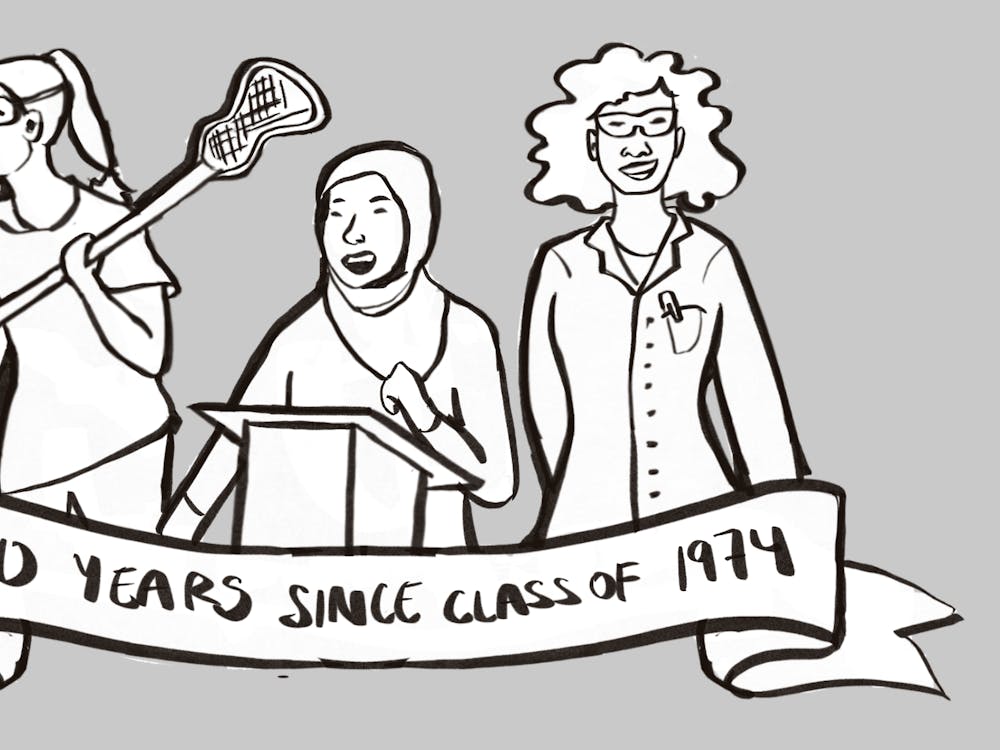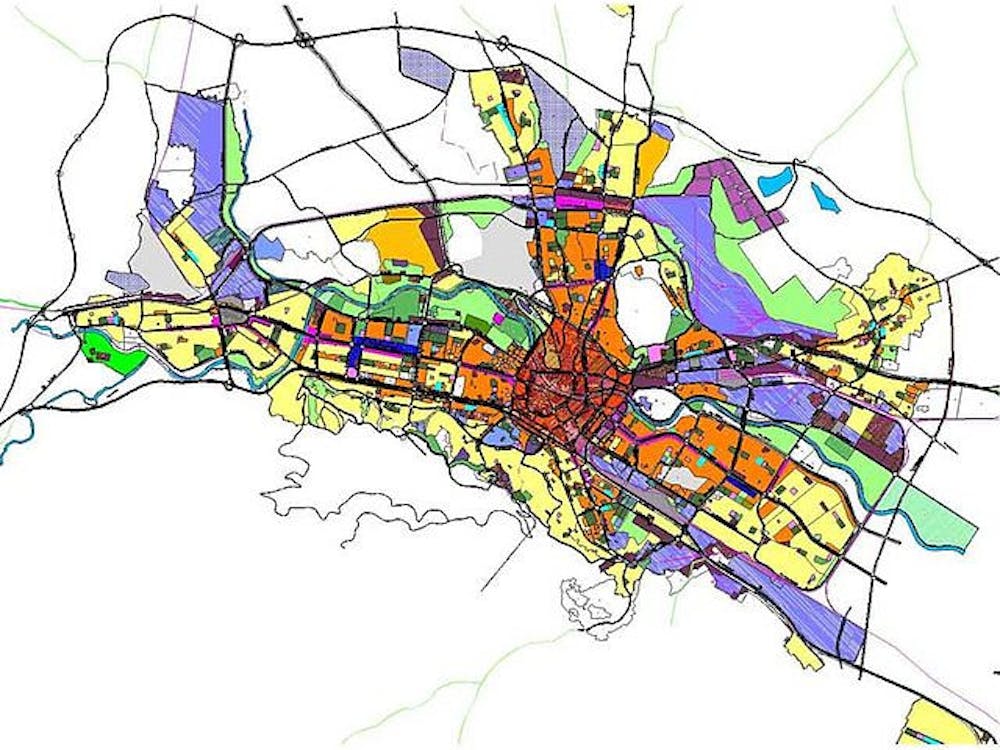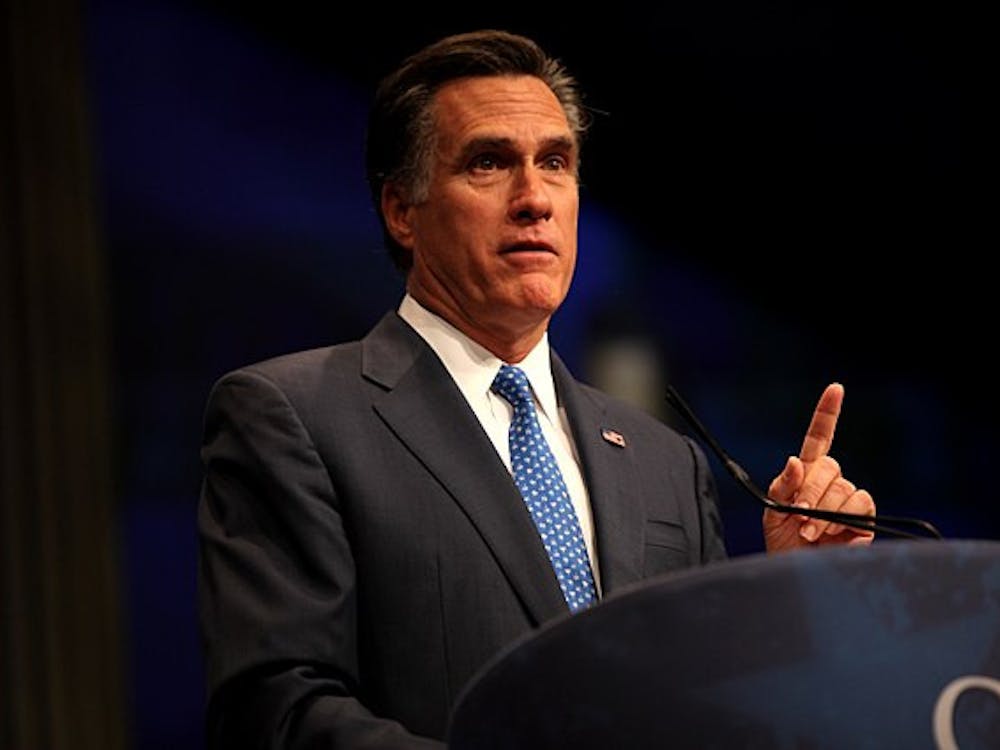Last week, the editorial board of The Johns Hopkins News-Letter claimed that the protest plans of the proposed student group Voice for Life (VFL) are “not a matter of freedom of speech,” arguing that students “should not be forced to view images of fetuses on school property.” The editorial board asserted that allowing this activity would violate JHU’s anti-harassment policy because it is “so severe or pervasive that it … creates an intimidating, hostile or offensive working or academic environment.”
These statements stand in stark contrast to The News-Letter’s thoughtful defense of pro-life protesters on campus less than two years ago. In May 2011, the editorial board wrote that it “supports the presence of opposing viewpoints as they challenge the status quo.” The mode of expressing the message then was no less controversial than it is now; protesters in 2011 “carried posters with graphic signs of aborted fetuses and lynched persons.” Yet the 2011 board implored us to remember: “Sometimes the exercise of one’s liberty is offensive, sometimes it is annoying and sometimes it is a disturbance, but these are not reasons to restrain it.”
The 2011 board had it right. Unfortunately, today’s News-Letter has demonstrated exactly the phenomenon that FIRE President Greg Lukianoff warned about in his recent book, Unlearning Liberty: Campus Censorship & the End of American Debate. University students, who largely used to welcome discomfort as an inevitable side-effect of challenging ideas, now welcome the decision of a small group of leaders to shield students’ eyes.
I’d like to review three critical points that the current News-Letter board gets wrong:
First, the idea that free speech is less essential on a private university campus is misguided. Private universities are not legally bound by the First Amendment, as public universities are. But if a private university commits itself to upholding the principles of free speech embodied by the First Amendment, it must keep that promise. Johns Hopkins’ undergraduate student conduct code notes the importance of “protect[ing] the university as a forum for the free expression of ideas.” In addition, JHU’s sexual harassment policy states:
Fundamental to the University’s purpose is the free and open exchange of ideas. It is not, therefore, the University’s purpose, in promulgating this policy, to inhibit free speech or the free communication of ideas by members of the academic community.
In other words, JHU has already acknowledged the necessity of properly balancing the right to be free from harassment with the right to free speech, and it claims to favor free speech. The current News-Letter board should recognize that Johns Hopkins has a moral responsibility not to disregard this statement of policy by deciding that some expression is simply too unpopular, or makes some people too uncomfortable, to protect.
Second, the current board attempts to make a distinction between the school simply allowing free speech and sponsoring certain viewpoints. The board contends that while VFL members “are still free to display photos of unborn babies,” they are not entitled to receive official recognition from the school in order to do so. However, the Supreme Court held in Board of Regents of the University of Wisconsin System v. Southworth (2000) and Rosenberger v. Rector and Visitors of the University of Virginia (1995) that when a public university uses student activity fees to fund a multiplicity of independent student groups, each student group retains its status as a private party expressing its personal viewpoint. The same principle holds for private universities like Johns Hopkins, which is obvious if you think about it: How could Johns Hopkins recognize both the College Democrats and the College Republicans if it had to agree with both groups?
Finally, The News-Letter stretches JHU’s harassment policy to include speech that does not rise to the legal standard of student-on-student harassment in education. The Supreme Court held in Davis v. Monroe County Board of Education (1999) that speech constitutes unprotected harassment when it is targeted, discriminatory conduct “so severe, pervasive, and objectively offensive that it effectively bars the victim’s access to an educational opportunity or benefit.” VFL President Andrew Guernsey clarified in speaking with The News-Letter that the organization planned to “speak to women in a peaceful, non-aggressive manner [and] hand out literature.” To call this harassment is to trivialize real harassment. But even if VFL chose to illustrate its point with gruesome images, those images would remain protected speech. Johns Hopkins students are not children; they are adults. And adults in a college setting do not have a broad right not to be confronted with ideas or images that make them uncomfortable—nor should they.






















Please note All comments are eligible for publication in The News-Letter.